Get ready!
You are on your way into the ECAUniverse…




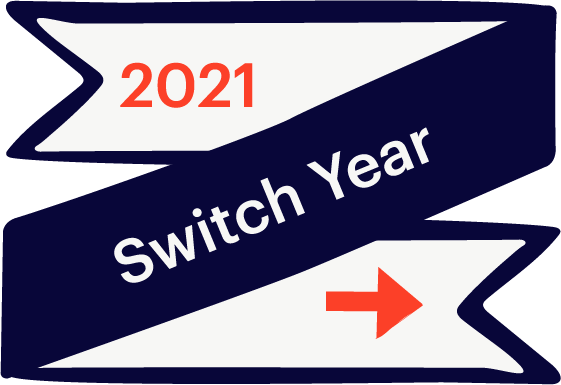












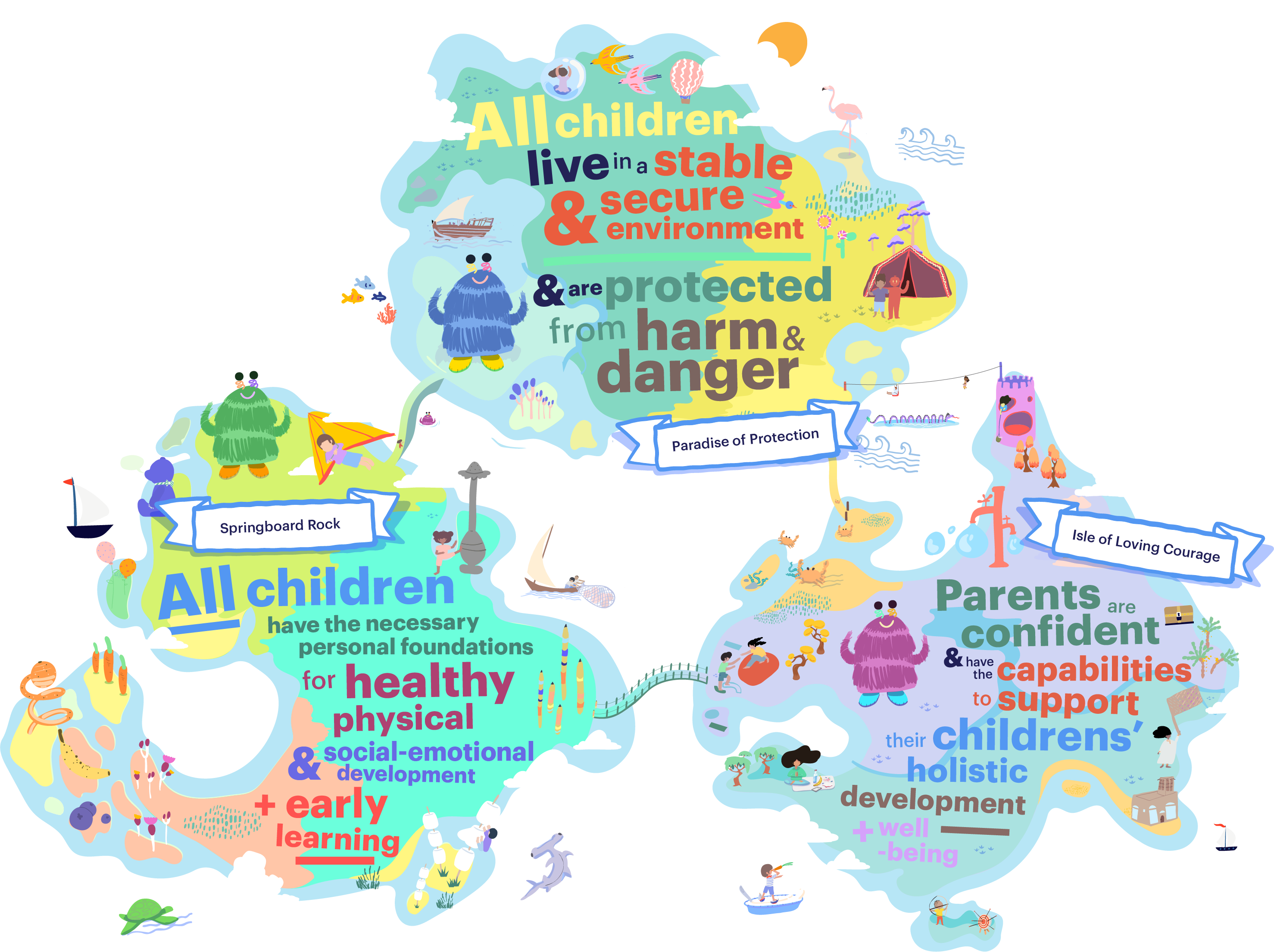



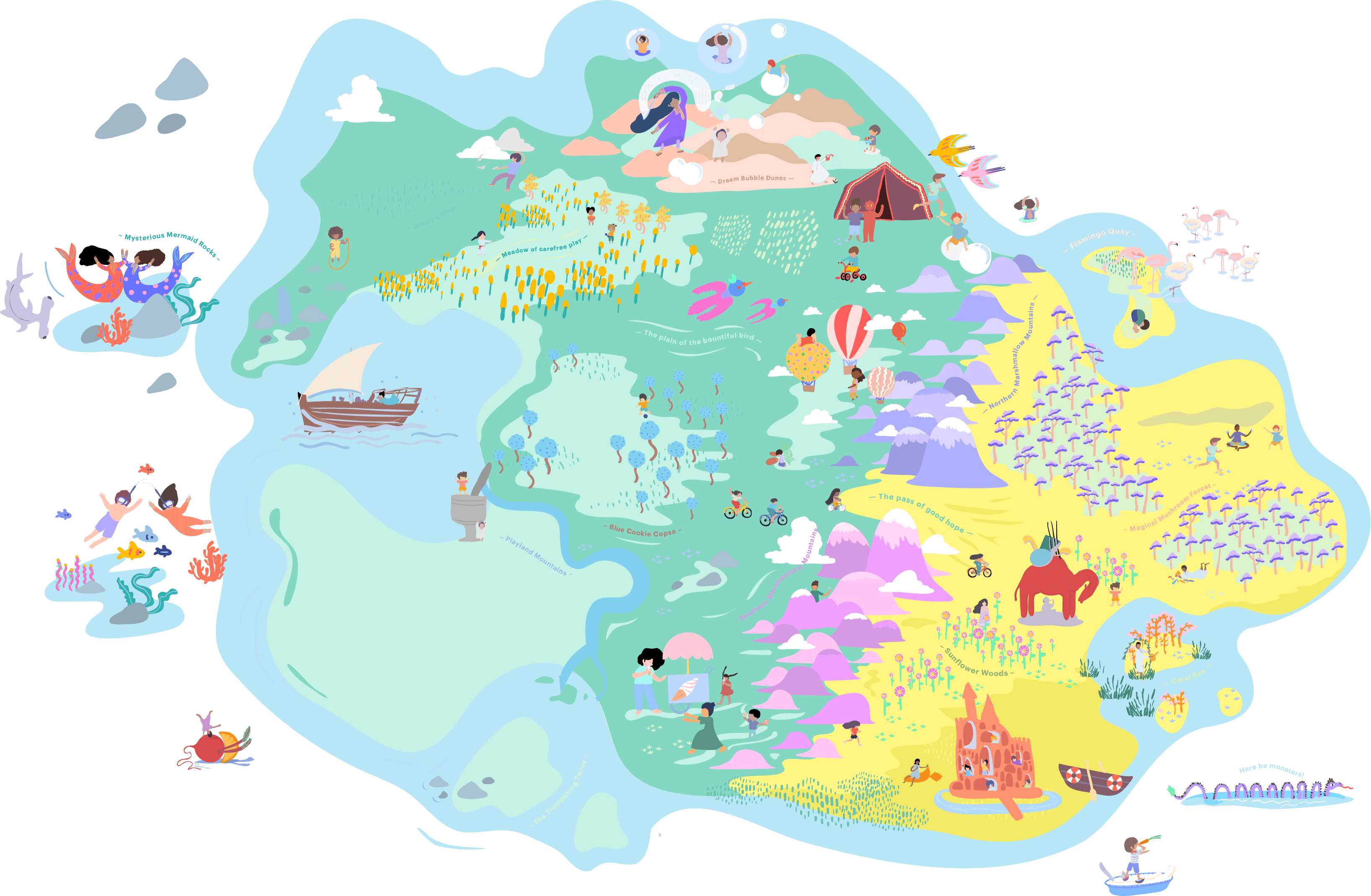
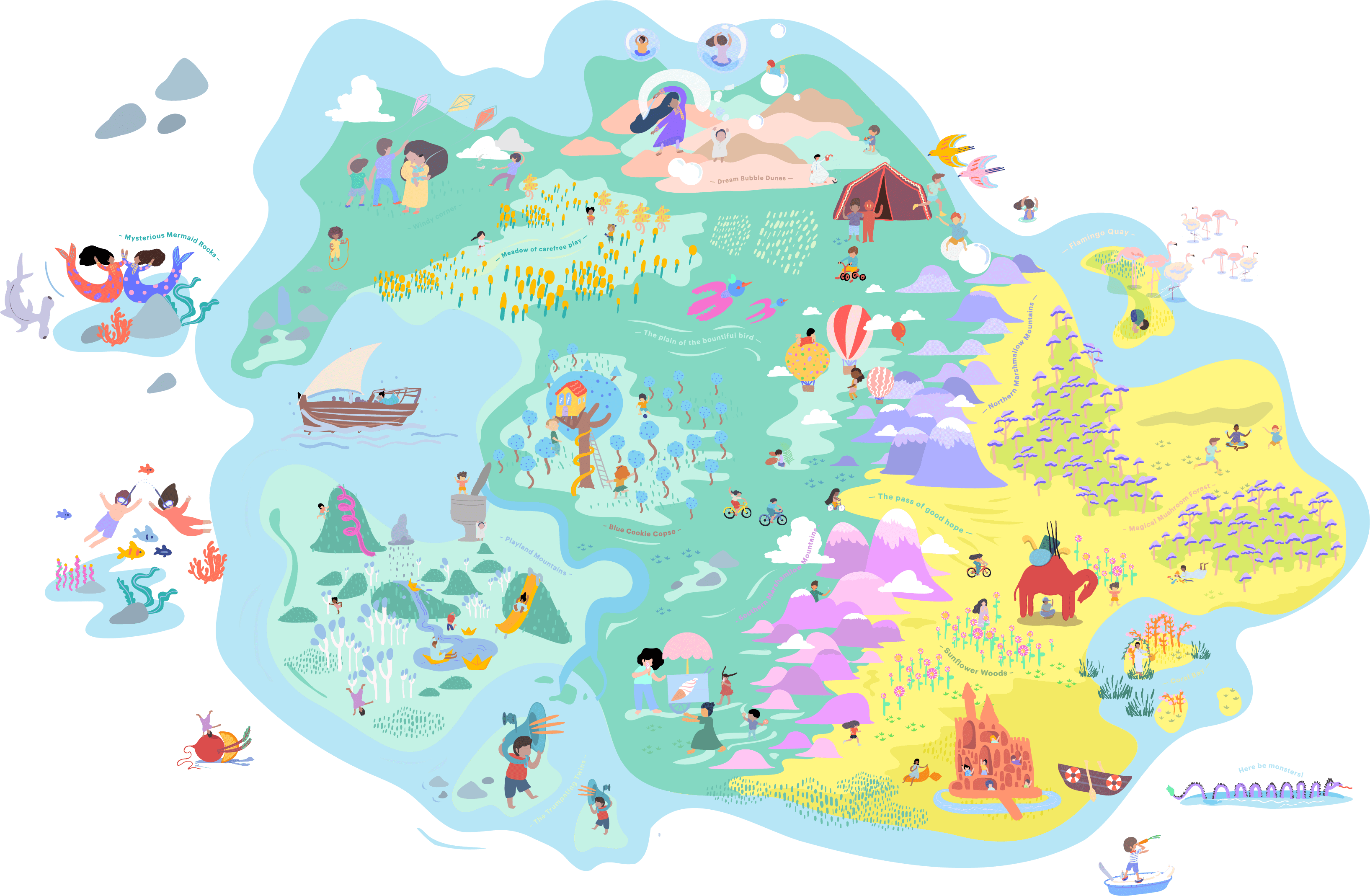








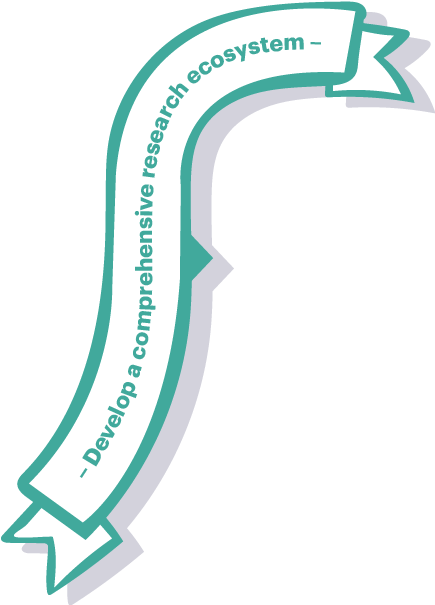
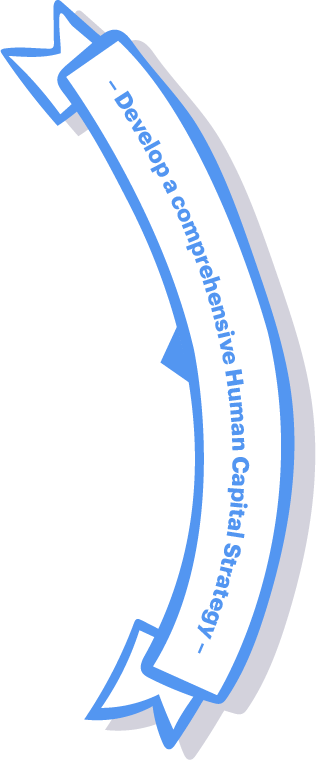

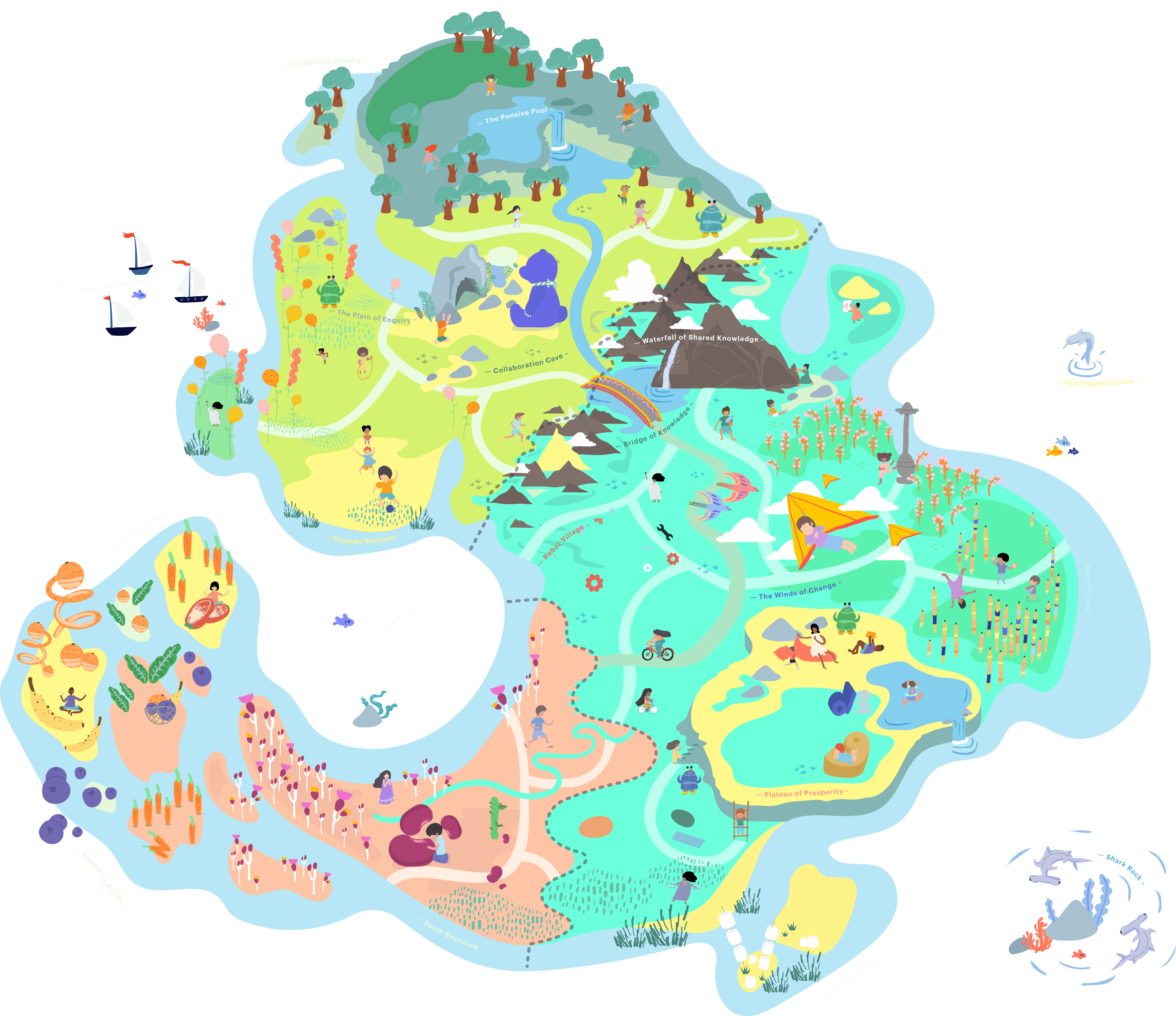
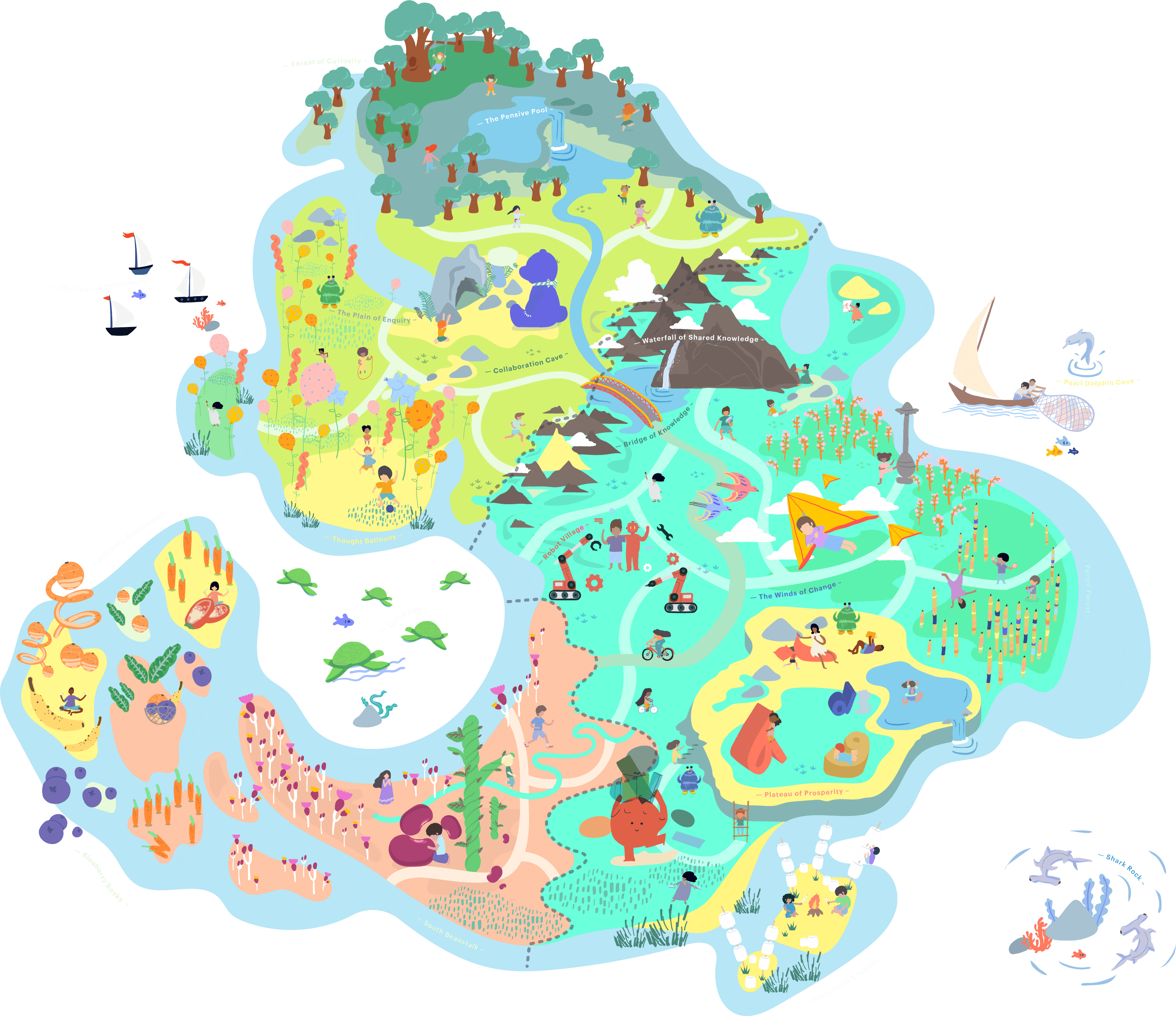
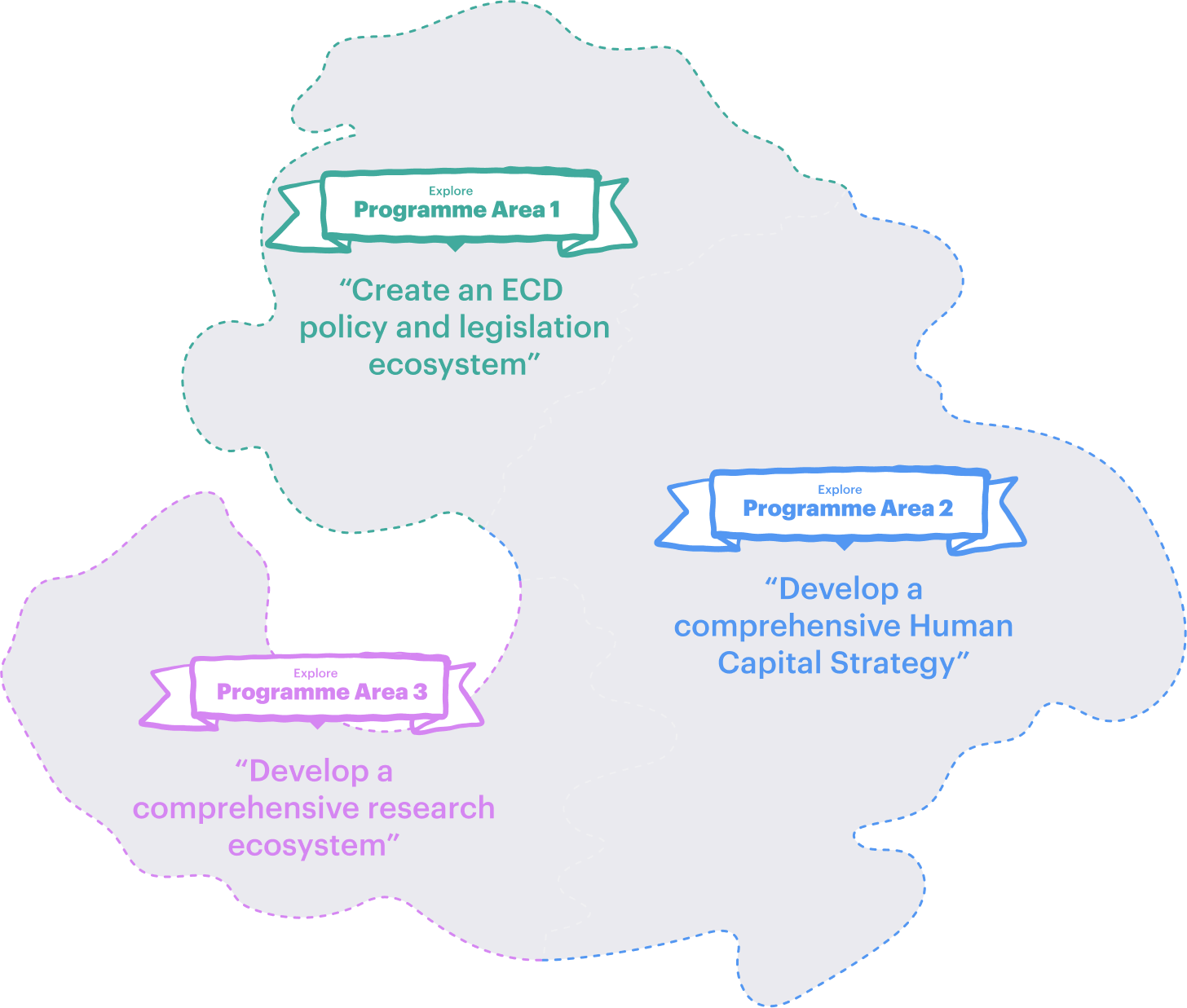
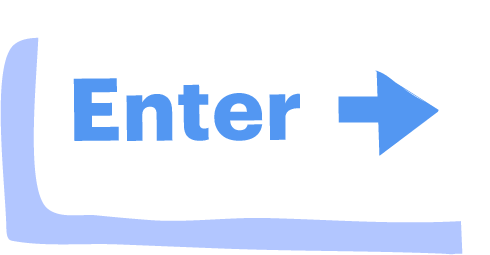
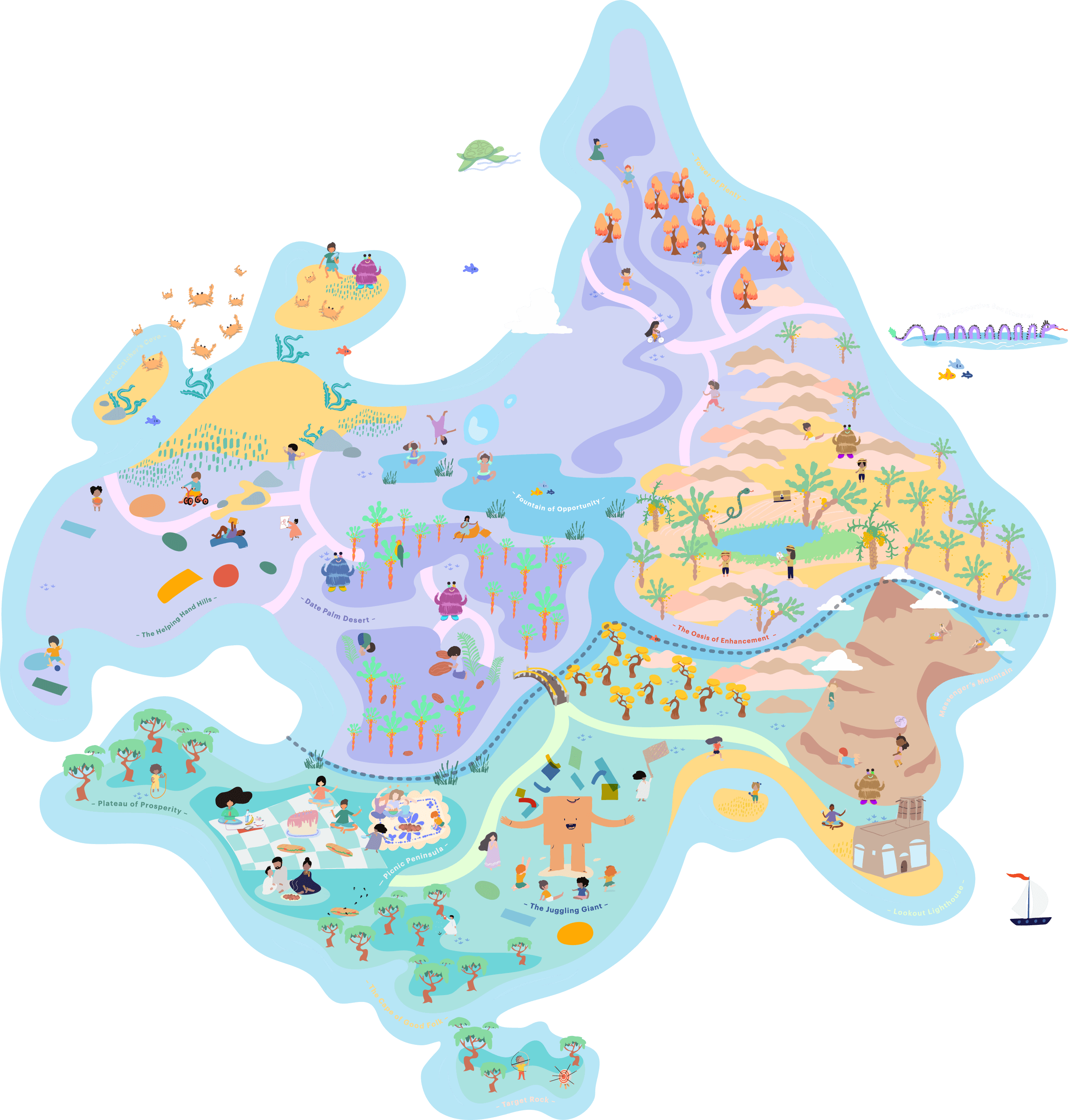
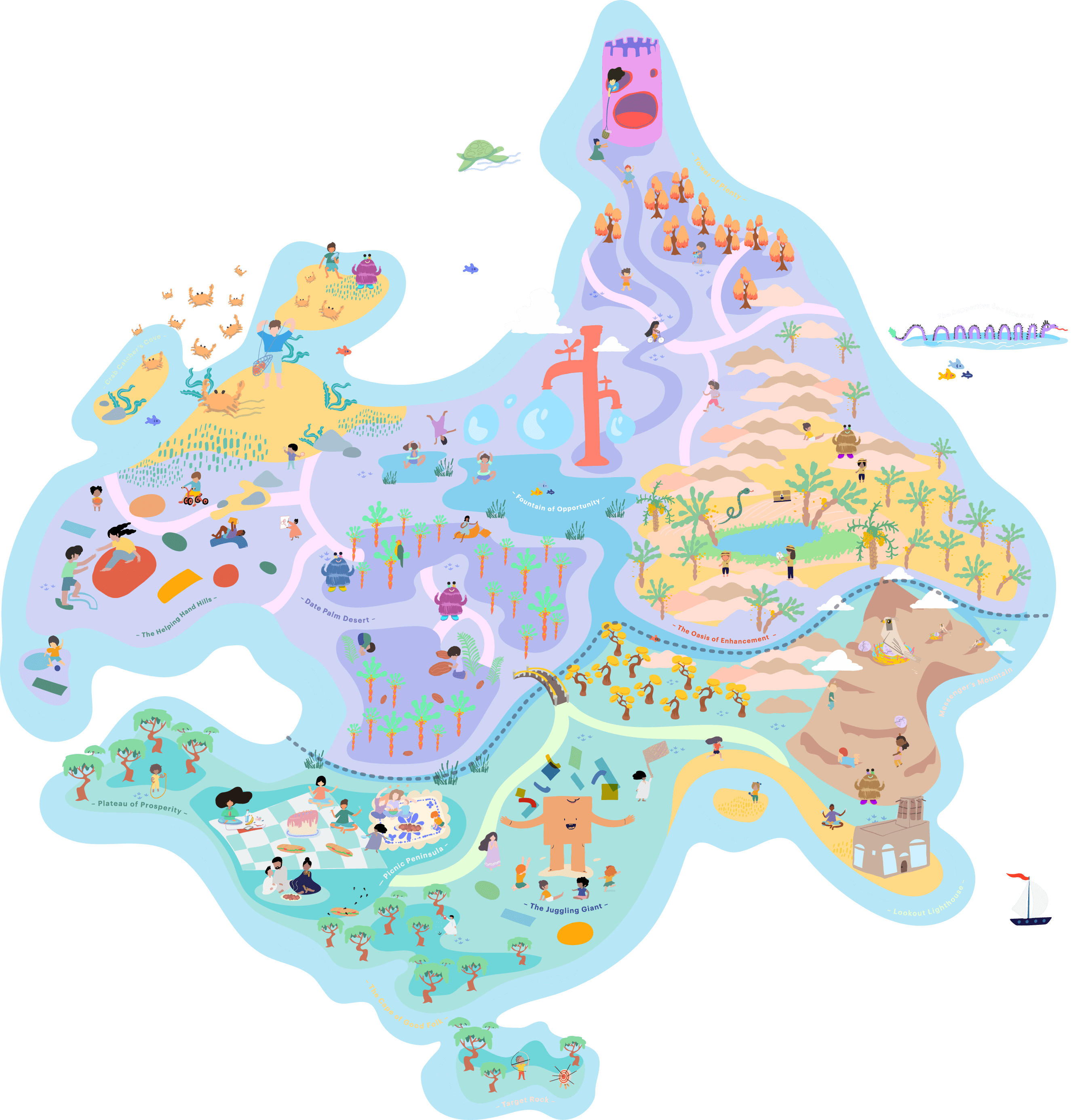
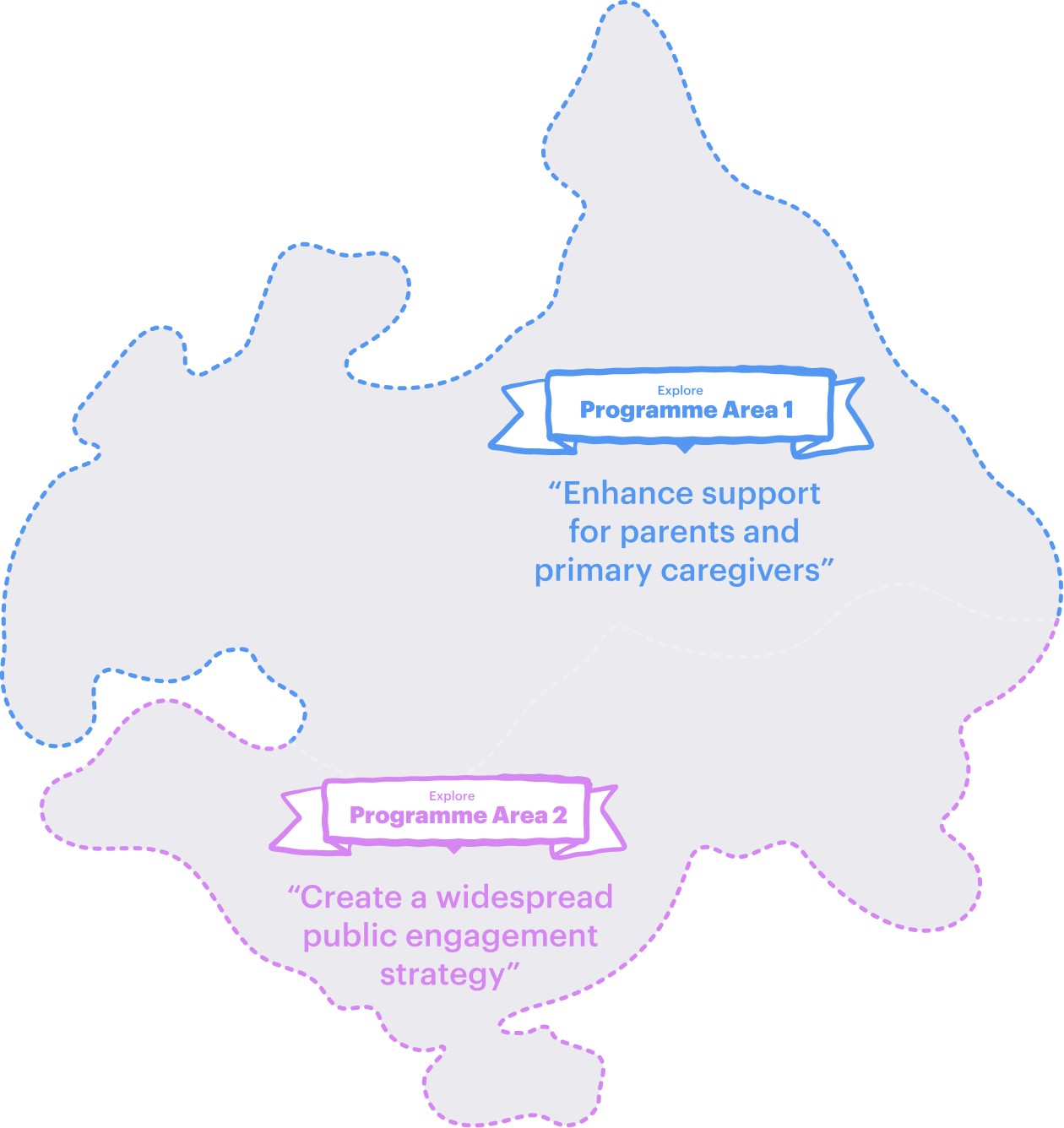

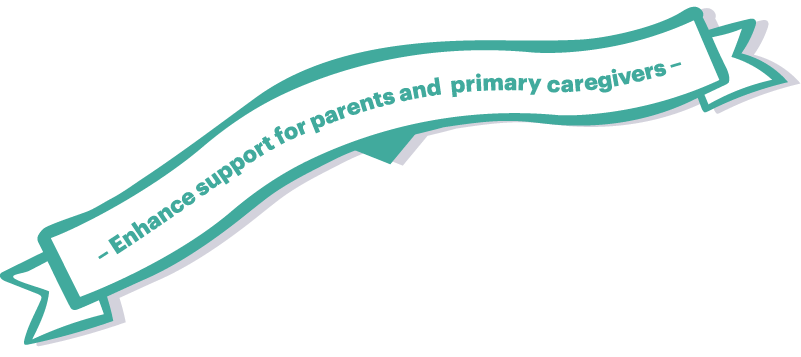
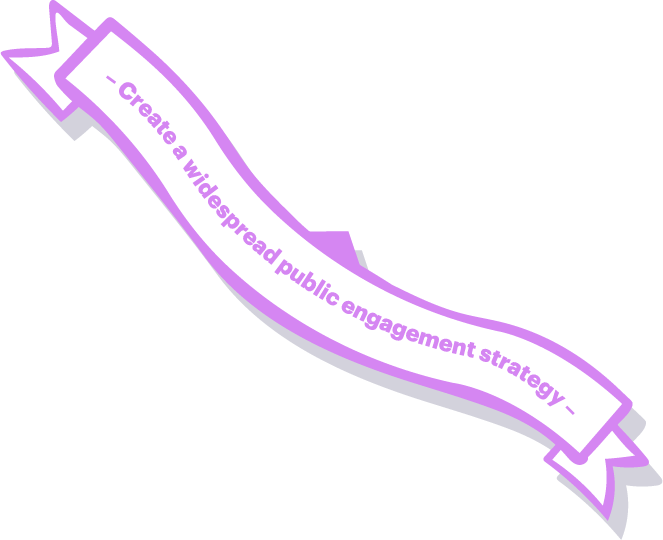









Hi there,
I’m Mahboob!
Some of you may know me from the ECA office, where I spend most of my time.
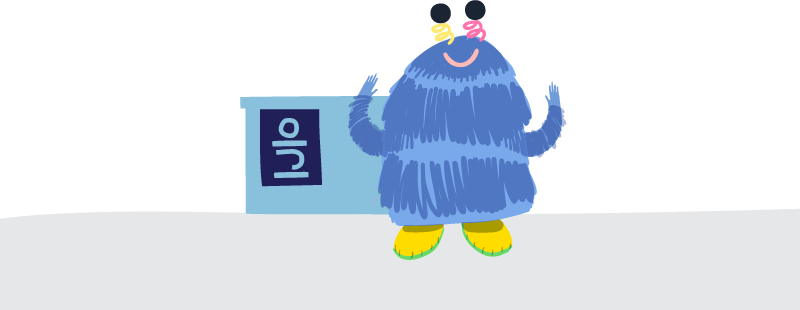
Today I’ll be your tour guide as we navigate the beautiful islands of my homeland. I’ve lived my whole life here, so who better to show you around?
In addition, I know where the most beautiful beaches are.

Along the way, you’ll encounter some of my friends and family, and together we’ll hunt for special Pearls of Achievement.
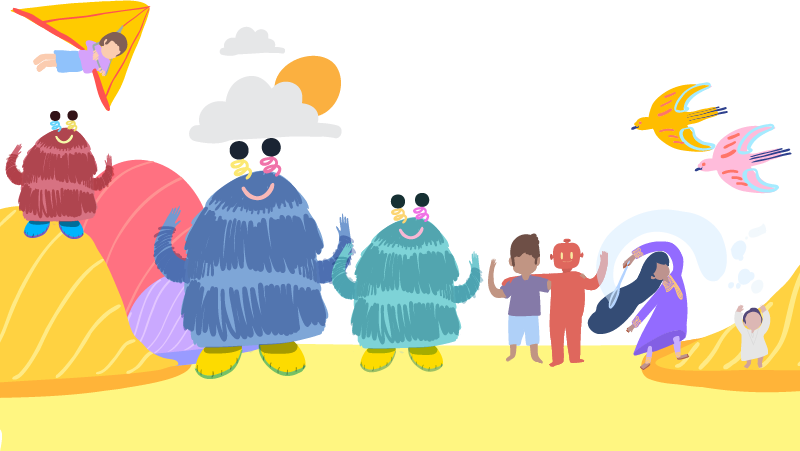
ECA Universe is made up of three islands, all of them stunning and exciting, and each with its own unique qualities.
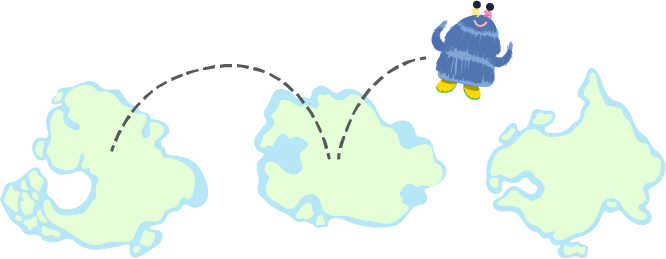
As you journey through our universe, you’ll meet the dedicated island dwellers who have been working to benefit children and parents alike.

Seek out the beautiful pearls to learn about our achievements

We hope you enjoy the trip!



About our Islands & Programs



How to Navigate our Islands
Use the map controls to zoom in and explore the islands. Each Pearl displays a different achievement from the past year.
If you don't have time to explore today, you can download a PDF version to read later.
We wish you a happy journey
around the ECAuniverse!






- Paradise of Protection
- Programme Area 1
Safe School Program

The launch of the Safe School Program means that a holistic approach to the safeguarding and wellbeing of children will be embedded into the day-to-day culture of all schools and nurseries in Abu Dhabi. With a framework built of 6 key pillars - leadership and governance, policies and procedures, professional development, school based programs, parent and community engagement, and school infrastructure - each comprehensive module ensures the participation and empowerment of students.
The Safe School Program was launched with a Working Group that includes Abu Dhabi Department of Education and Knowledge, Emirates Schools Establishment, Ministry of Education, the Abu Dhabi Department of Community Development, Khalifa Empowerment Program, the Abu Dhabi Department of Health, and the National Rehabilitation Center. With the rollout of the pilot for a test group of government and private schools underway, we finalized the Safe Schools Handbook Framework and training agreement to support school Child Protection Policy and training on the child protection concern handling process.


- Paradise of Protection
- Programme Area 1
Interagency Child Protection Case Management Manual

The completion of the Interagency Child Protection Case Management Manual provides multiple entities and their coordination mechanisms with the vital processes and tools for ensuring child protection. With the support of our various partners we will provide child protection policy and case management in the school environment, and the development of a child protection case management platform in school and health environments.

- Paradise of Protection
- Programme Area 1
Ewa'a operating model

The operating model and structure of Ewa’a (Abu Dhabi Center for Sheltering & Humanitarian Care) has been finalized together with Ewa’a team.


- Paradise of Protection
- Programme Area 1
Child protection work at a federal level

Participated in the activation of the Child and Family Protection Committee at a federal level now means, with the support of the Abu Dhabi Department of Community Development and the ECA, it can expand its child protection work to ensure a full and comprehensive system design for all types of Family Protection and Violence.


- Paradise of Protection
- Programme Area 1
Procedures to help report child abuse

The launch of the Health and Education Frontliner policies and procedures and the Education Concern Manual and policy is the first time that health and education entities have detailed policies and proceedures in place to guide the identification of reporting of child abuse and maltreatment.

- Paradise of Protection
- Programme Area 1
Child protection training for different entities

Throughout 2021 further initiatives to continue training across critical human resources related to child protection have resulted in 104 Child Protection Specialists graduating and 50 participants completing upskill training. In total 182 Child Protection Specialists received training, including enrollment of shelter and alternative care for abused children human resources. This was the first ever group of Child Protection Specialists to recieve Judicial Officer status, and were selected from a diverse group of Government entities, including the SSC, Ewa’a (Abu Dhabi Center for Sheltering & Humanitarian Care), Zayed Higher Organization, the Abu Dhabi Department of Education and Knowledge, the Abu Dhabi Department of Health, the Abu Dhabi Judicial Department, the Ministry of Education, the Abu Dhabi Department of Community Development, Dar Zayed for Family Care, and the Ministry of Community Development (MOCD).
2021 also saw a total of 133 specialists receive training in forensic interviewing and awareness raising skills. 51 Judicial Officers received further training, 11 organizations received guidance on the Child and Family Case Management System manual and its associated policies and practices. Staff from the Zayed Higher Organization received tutoring on abuse identification, and in coordination with the Judicial Department and Social Support Centers we launched pilot training for conducting child investigation interviews.


- Paradise of Protection
- Programme Area 1
Interagency case manual

With the finalization of the review process for interagency case manual and health sector concern forms, complex cases of child abuse have now been referred to relevant government agencies for review, asessment and recomendation for measures to take to protect children at risk.

- Paradise of Protection
- Programme Area 1
"Community engagement program to stop child abuse and promote family support"

A Community Engagement Program and a working group on child protection were initiated in order to prioritize means of safeguarding and preventing child abuse and to promote the importance of family protection and support. This is an Abu Dhabi, multi agency program, integrally linked to the ECA’s agenda, alongside a partnership with UNICEF that will boost ECA’s communication strategy.

- Paradise of Protection
- Programme Area 1
Child protection policy for schools

In partnership with the Abu Dhabi Department of Education and Knowledge, we have finalized the child protection policy and case guide for school environments.

- Paradise of Protection
- Programme Area 1
Child Protection
Case Management System

Our strategic partners have approved the development of the Child Protection Case Management System as a pilot, with UNICEF Primero software chosen and features of the minimum viable prototype defined. Rollout across various entities is currently underway.

- Paradise of Protection
- Programme Area 2
Anjal Z Cohort 2 and collaboration with ADIO

In a strategic collaboration with the Abu Dhabi Investment Office we have provided funding of 15 million AED, three years of additional support for startups. The virtual and in-person portions of the Anjal Z program were conducted with seven startups selected out of 130 applicants.
Workshops were held with more than ten global experts, resulting in over 40 meetings between the startups with more than 15 public and private stakeholders in order to help drive the pilot launch. Of those seven startups, six signed agreements to receive a mobilization grant of 50k USD. The Anjal Z Innovation Champion Workshop took place with the participation of 21 Abu Dhabi government and private sector individuals. The Abu Dhabi Youth Challenge was also held both in-person and virtually, with the winners completing internship programs.

- Paradise of Protection
- Programme Area 2
ECA's Data Science case studies

"In order to understand and gain insight into challenges impacting children, five Use Cases were completed by ECA’s Data Science united on the following topics - Break the Cycle; Happy Learning Stories; Low Birth Weight Babies; Children of Determination friendly schools and the Impact of Divorce on Young Children's Education Attainment. Three new Use Cases are currently underway covering the topics of infant mortality, fatal and non-fatal injuries and low birth weight.
Insights gained into the impact of divorce on young children’s education attainment were presented to the Department of Community Development, Ministry of Education, the Abu Dhabi Department of Education and Knowledge and ECA Expert Advisors. These insights will be discussed and interpreted with the aim of developing initiatives and new methodology, along with identifying challenges that face the education system, for rating Children of Determination friendliness of schools."

- Paradise of Protection
- Programme Area 2
Quality Assurance Project

In order to ensure that high standards are met within services, products and programs in the field of early childhood, we have finalized the prioritization process to select the facilities, services and resources (ECSR) that will be the focus of part one of the Quality Assurance Project.


- Paradise of Protection
- Programme Area 2
Child Protection Case Management System

Our strategic partners have approved the development of the Child Protection Case Management System as a pilot, with UNICEF Primero software chosen and features of the minimum viable prototype defined. Rollout across various entities is currently underway.




- Isle of Loving Courage
- Programme Area 1
Workshops on parenting and caregiver strategies and methods

We engaged 23 local and federal entities to work together on parenting and caregiver strategies and methods. A series of workshops were held with the Technical Committee to capture partner’s inputs, validate a comprehensive diagnostic of parents, identify improvement opportunities, and discuss strategy priority areas. To inform the development strategy, we are currently planning a additional focus group with low-income families that receive services and support from ADSSA.

- Isle of Loving Courage
- Programme Area 1
Parent Friendly Label

To support parent friendly workspaces we launched a volunteer program that recognizes and awards private sector and semi-government organizations. The ‘Parent Friendly Label’ saw ten companies recognized as early adopters at the beginning of 2021 - these companies, along with ten small and medium enterprise and six private sector companies, provided feedback that would go on to help define the criteria and principles.
Through a series of outreach efforts over 80 companies were invited to apply for the label, out of which 14 Abu Dhabi organizations applied for the Parent Friendly Label and a further five applied for Parent Friendly Plus. Evaluations of the applicants are currently underway, and awards will be given during 2022. Sharjah Education Council showed interest on the Parent Friendly Label in Sharjah, and the initiative will be expanded to other emirates, with more organizations added to the label as the program expands in the coming years.

- Isle of Loving Courage
- Programme Area 1
Parenting in a Pandemic online program

The launch of the Parenting in a Pandemic and Beyond Intervention has given parents access to a comprehensive online program that provides practical tools, strategies and easy play ideas to help keep children healthy, happy and learning throughout lockdown and beyond. Within the first 3 weeks of launch, 28,000 people registered and 24,954 attended.

- Isle of Loving Courage
- Programme Area 1
Strategic partner's work on early childhood care and education

We have continued to support our strategic partners in their work on early childhood care and education. In 2021 we reviewed and socialized MoE’s Bara’em Al Mustaqbal Philosophy Framework and Child Profiles, the Practitioner Guide and the Assessment Guide. We also supported MoE’s redesign of the National Early childhood education and care strategy and ECSRE Policy Framework for the Emirate Abu Dhabi.

- Isle of Loving Courage
- Programme Area 1
KAP Survey

We received 300 responses to the Parent Knowledge, Attitudes and Practices survey, and 119 responses from the Practitioners survey - the various insights gained from these surveys was launched, along with a meeting with partners to understand their ongoing and planned efforts regarding parental and caregiver support.

- Isle of Loving Courage
- Programme Area 1
Positive Parenting Program Framework

With partners from the health, education, social, police and judicial sectors we launched the Positive Parenting Program Framework. A needs assessment was conducted to adapt and contextualize training and content, and stakeholders were mobilized to take part in delivering the program.
Twenty six practitioners were selected from nine entities in the health, education and social sectors to take part in the facilitators training pilot. A session was conducted with the “Voice of the Child” panel on parenting challenges and willingness to participate in the program.

- Isle of Loving Courage
- Programme Area 1
Community engagement program Athar

COVID-19 has created a number of challenges for the children, parents and caregivers of Abu Dhabi. In order to identify and assist with these challenges, the community engagement program Athar was created. Nearly 700 responses from parents and caregivers with children below the age of nine were received through a Community Engagement Poll, which was then furthered with over 25 hours of ideation with 47 diverse ECD stakeholders representing 13 countries. This resulted in the generation of 59 ideas, which were then refined to 25 and a shortlist of six ideas was created. From this shortlist, three initiatives were prioritized and will be piloted in schools and nurseries during 2022.
First to be implemented is the “Learning Leaps” pilot program, which will provide equal opportunities for children by supporting the after-school education of pupils from low-income families by connecting them with volunteer educators.The “Rising Star” initiative is a collaboration with Anjal Z that aims to use technology to connect parents with practitioners so they can monitor the development of children outside the classroom. A select number of schools and nurseries will also incorporate play-based open learning methods through the “Learning Through PlayLab” pilot initiative, which hopes to increase successful development for children.

- Isle of Loving Courage
- Programme Area 1
Integrated Early Childhood Intervention System

The ECA has been leading the agenda on an Integrated Early Childhood Intervention System (IECS) by establishing a multi-sector working group created from 49 members, representing 17 organizations, government departments, UAE federal entities, and private sector service providers. We have held meetings with both the Butterfly Foundation and the Gates foundation, who represent parents of Children of Determination, to discuss their roles in shaping the IECIS.
With the support of ZHO and community partners we have gained first-hand experience and local insight through 15 baseline stakeholder interviews, four focus groups, and a quantitative survey with more than 200 parents of Children of Determination. This, along with benchmarking and the review of evidence based findings, will help us establish a shared understanding on the current outcomes of the current state analysis from the multi-sectoral working group.
To prepare for the future system, we have worked with over ten partners to design the target state and set in motion the development of initiatives for implementation.

- Isle of Loving Courage
- Programme Area 2
World Early Childhood Development Movement

In order to create and share knowledge for the advancement of Early Childhood Development both in Abu Dhabi and on a global stage, 2021 saw the creation of the World Early Childhood Development Movement. The WED Movement is bringing together the world’s leading experts, innovators and disruptors to curate the best possible solutions to positively impact the lives of all children and empower the Early Childhood Development sector.
The WED Movement first edition in March 2021 saw the Global Virtual Kick-Off hosted by Ms. Cecilia Vaca Jones and HE Omar Ghobash and included 21 Breakthrough Working Groups from nine countries form a multi-sectoral and multi-experienced taskforce with the aim of actively engaging over the next nine months around four main global themes - Tech Humanity for Children, 21st Century Lifestyle, Social Emotional Wellbeing, and Social Interaction. During this time, BWGs interviewed both community members and professionals in the field in order to validate their assumptions and conduct baseline research and initial surveys. Once finalized and prioritized, BWG teams presented these conceptualized prototypes at the final Demo day event held in November.
In December, a two day workshop was held to start co-designing implementation paths for six strategic outputs - the Annual Survey on technology, design principles on technology use, awareness campaigns on social interaction, explosion boxes, microbiome research, and ARCS (Achieving the Rights of the Child Systemwide). This was achieved with the assistance of international experts and both public and private partners including Mubadala, the Crown Prince Court, the Abu Dhabi Executive Office, the Abu Dhabi Department of Education and Knowledge, the Abu Dhabi Digital Authority, the Abu Dhabi Department of Community Development and Abu Dhabi Government Media Office.
Sponsors at a variety of levels and contributions were secured during 2021, and their partnerships will continue into 2022 with the aim of further raising awareness and communicating the aims of the movement, as well as continuing to progress in the output implementation. Special mention is made to our visionary partner Mubadala, who officially onboarded on the 12th December 2021.

- Isle of Loving Courage
- Programme Area 2
Awareness of key ECD topics

Throughout the year we have invested in and engaged with a number of awareness campaigns - on topics ranging from the importance of learning through play (working with Abu Dhabi New York University on Emirati Children’s Day), the importance of safety when playing outside (in partnership with Abu Dhabi Police), a child protection social media campaign, and have raised awareness of key ECD topics in shopping malls such as Al Ain. We have also promoted increasing awareness about dental health, premarital counseling, maternal health, the effects of divorce, and child vaccination.

- Isle of Loving Courage
- Programme Area 2
Community satisfaction survey

With the goal of ensuring every child in Abu Dhabi can develop and thrive in a safe and protected environment, we launched a community satisfaction survey to enhance our early childhood awareness efforts and empower our capabilities in the care and development of every young child.



- Springboard Rock
- Programme Area 1
ECD research ecosystem strategy

The ECD research landscape scan was completed and the ECD research ecosystem vision statement and strategy was finalized.

- Springboard Rock
- Programme Area 1
Pregnancy Monitoring System (PRAMS)

In order to address gaps in administrative data and support a more holistic view of the wellbeing of families of children aged 0-8, a series of expert meetings were conducted with the aim of developing a portfolio of assessment tools and identifying which of these tools should be added first.
In partnership with the Abu Dhabi Public Health center the ECA collaborated with Khalifa University to implement a Pregnancy Risk Assessment Monitoring System to learn about the attitudes and behaviors of mothers before, during and after pregnancy - with the ultimate aim of reducing infant mortality, low birth rate and maternal morbidity through a number of data-driven interventions. The pilot of this continuous monitoring scheme will start in 2022.


- Springboard Rock
- Programme Area 1
Grants to address ECD knowledge gaps

In order to address two key knowledge gaps in the ECD landscape, concerning chronic absenteeism and the early intervention for children of determination, during 2021/22 we launched a call for proposals for funding opportunities as parts of the Grants Program seed initiative. We received 38 proposals and awarded five of them a total grant of AED 1.2 million.


- Springboard Rock
- Programme Area 1
Survey on the impact of COVID-19

In order to measure the impact of COVID-19 on children and families, two waves of a survey were conducted with the aim of measuring sentiment of both parents and children.
These results and their application in policies, programs and actions were presented to various Abu Dhabi government entities, including the Abu Dhabi Department of Education and Knowledge, the Department of Community Development and the Abu Dhabi Public Health Center. The survey findings will also be published and shared with the public.

- Springboard Rock
- Programme Area 2
Program to help fresh graduates find work in ECD careers

A “bridge” program was established in partnership with Zayed University, the Higher College of Technology, and UAE University in order to prepare fresh graduates for new job opportunities in fields related to early childhood development. This will help graduates enhance their skills and knowledge, and identify the specific challenges they are facing.

- Springboard Rock
- Programme Area 2
Workshop on ECD guide with preachers and religious guides

In order to develop an ECD guide a workshop was conducted for preachers and religious guides at the General Authority of Islamic Affairs.

- Springboard Rock
- Programme Area 2
Professional development programs for policymakers

In order to create and implement the overall approach to the ECD in Abu Dhabi and the UAE, ECA launched a number of professional development programs for 56 leading policymakers. Launched in partnership with Abu Dhabi New York University, these programs increased awareness of the latest international research in the field of designing and implementing comprehensive services for young children.

- Springboard Rock
- Programme Area 2
National Service Training Program Launched

National Service Training Program was launched by the Center of Excellence for Applied Research & Training and has provided a thousand (1000) recruits with education and guidance in the fundamental elements of Early Childhood Development. Over five consecutive days Program provided both face to face tutoring, as well as over 30 hours of training with content available in both English and Arabic.


- Springboard Rock
- Programme Area 3
Golden visa program to attract ECD related talent

In order for the UAE to become a world leader in the ECD sector, we need to address the lack of human capital. By launching the Golden Visa and Citizenship Initiative, we have created a huge opportunity to attract ECD related talent to the UAE and fill both the short and long term human capital gap. Thirty six applicants took part, with nominations for ECD practitioners received from five entities at both local and federal level.

- Springboard Rock
- Programme Area 2
Survey to understand challenges faced by ECD sector workers

A survey was launched in order to understand the strengths and challenges facing workers in the early childhood development sector, that reached over 2,000 health professionals (with the help of the Abu Dhabi Department of Health) and through the ECA a further 300 Child Protection specialists.

- Springboard Rock
- Programme Area 2
ECD career opportunities in Abu Dhabi

ECD career opportunities in Abu Dhabi were further promoted by engaging with DCD and social centers to develop an understanding of the positions with the largest shortage and budget availability in order to plan recruitment together.
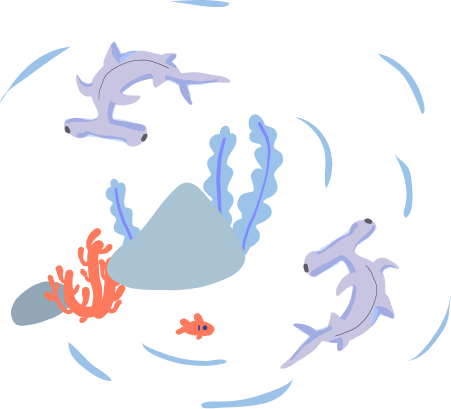

- Springboard Rock
- Programme Area 3
Nursery workers and teachers training

Over 5,000 registered practitioners took part in the launch of a Program on Quality Improvement & Child Development Training for Nurseries - a set of professional development modules delivered through online workshops by local experts and specialists. Launched in collaboration with the Anjal Z startup Kinderly, the program’s aim was to improve the early childhood skills of nursery managers, principals, teachers and teaching assistants.

- Springboard Rock
- Programme Area 3
Training around child protection topics

Professional training around child protection topics was developed in association with the Abu Dhabi Sports Council. Topics included amongst others are code of conduct, introducing the child protection policy, how to identify signs of abuse, report and refer cases.

- Springboard Rock
- Programme Area 3
ECD Policies Agenda

In accordance with the operational plan, the current year has seen the development of the ECD Policies Agenda - which includes six different policies, the furthering of parental leave policy, as well as addressing issues contemporary in the ECD sector.

- Springboard Rock
- Programme Area 3
ECD Policymaking Manual

Working with key partners we have developed the Abu Dhabi Early Childhood Authority (the ECA) Policymaking Manual, designed for stakeholders who are involved in advancing policies in the Early Childhood Development (the ECD) sector.

- Springboard Rock
- Programme Area 3
Guide on excessive screen time effects

A guide and child protection policy directive was launched in order to accomplish the policy target of evaluating and selecting a feasible approach to lessen the potentially harmful effects of excessive screen time on young children.

